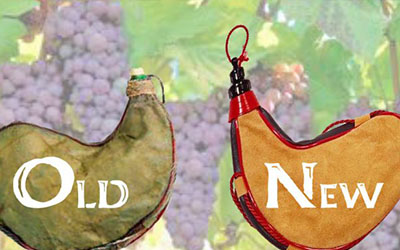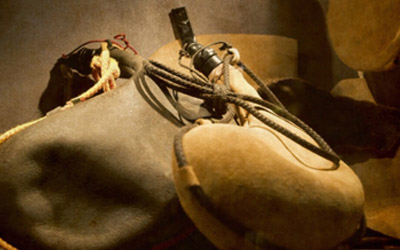The Old and the New
Few Christians know that there is an old covenant and there is a new one, but even fewer really know why there are two, and know enough of their differences to experience a transformation by the renewing of their mind, a paradigm shift in how they relate to their God.
(Bấm vào đây để đọc tiếng Việt)
Stuck in the old way
 Most Christians relate to God in the same way the people of Israel did under the Old Covenant. While the Israelites offered bulls and goats or other sacrifices for their sins, the Christians offer apologies, acts of penance, myriad forms of pious deeds, in their place. Little did they know, or rather if they read the Bible and understand it they should already know, that these acts are completely worthless toward their attempt to draw near to God.
Most Christians relate to God in the same way the people of Israel did under the Old Covenant. While the Israelites offered bulls and goats or other sacrifices for their sins, the Christians offer apologies, acts of penance, myriad forms of pious deeds, in their place. Little did they know, or rather if they read the Bible and understand it they should already know, that these acts are completely worthless toward their attempt to draw near to God.
In the Parable of the Net, Jesus spoke of the a house owner who brought out new and old things from his treasure. Though Jesus did not elaborate on what the owner was going to do with them, we can safely deduce from the first two examples in this parable in which bad fish were discarded and wicked people were thrown into the fiery furnace, that the house owner would discard the old and keep the new. The theme of the abolishing of the old while ushering in the new is continued in force in the Hebrews passage we’re studying here.
Hebrews 10:1-20
For the law possesses a shadow of the good things to come but not the reality itself, and is therefore completely unable, by the same sacrifices offered continually, year after year, to perfect those who come to worship. (Hebrews 10:1)
The sacrifices, the apologies, the acknowledgement of guilt, the self denial, the harsh treatment of self (Colossians 2:23), cannot make them more acceptable to God. Yet God does require perfection of those who want to bathe themselves in his glory (Matthew 5:48).
Let read on to the Hebrews verse that follows:
For otherwise would they not have ceased to be offered, since the worshipers would have been purified once for all and so have no further consciousness of sin? (Hebrews 10:2)
According to the Hebrews verse above, were the pious things you do to get right with God effective at all, they should have “ceased to be offered.” No more sacrifices, no more acts of penance, no more sin confessions, for if you have been “purified once for all” and have “no further consciousness of sin,” why should there till be any need for those acts? But for some inexplicable reason, the Christians still perform these acts in various forms. It must be because they don’t feel they’re good enough for God. There are more sins to be forgiven, more sanctification to strive for, more of something they have a vague inkling of in their mind that they need to arrive at before they can be fully acceptable to God.
The Hebrews writer goes on to show why the Christians are stuck in this vicious cycle of sinning and confession, of transgressions and repentance or making amends. The following verse shows us why:
But in those sacrifices there is a reminder of sins year after year. For the blood of bulls and goats cannot take away sins. (Hebrews 10:3-4)
The blood of bulls and goats, the acts of contrition, the making of amends, not only cannot take away sins, they remind the worshippers of what that stand between them and God: their sins. That’s the reason why so many Christians live in a state of perpetual guilt and a sense of inadequacy toward God, because as long as they still have “consciousness of sin,” they cannot draw near to God.
I hope by now the reader is resolved in his mind that many things commonly practiced and adhered to by most Christians and taught by virtually all preachers for thousands of years have been leading them in a vicious cycle, much like the journey of the Israelites in the desert. The Ten Commandments given them from mount Sinai did exactly that: they remind them of their sins instead of removing them. They didn’t realize that the commandments are not their path to redemption, but formidable barriers that no sinner can cross.
The Hebrews passage that follows is nothing short of revolutionary, it demolishes all popular ideas of worship and devotion, and it was foreshadowed in the Old Testament (Psalms 40:6-8):
So when he came into the world, he said,
“Sacrifice and offering you did not desire, but a body you prepared for me. “Whole burnt offerings and sin-offerings you took no delight in. “Then I said, ‘Here I am: I have come - it is written of me in the scroll of the book - to do your will, O God.’”
When he says above, “Sacrifices and offerings and whole burnt offerings and sin-offerings you did not desire nor did you take delight in them” (which are offered according to the law), then he says, “Here I am: I have come to do your will.” He does away with the first to establish the second. By his will we have been made holy through the offering of the body of Jesus Christ once for all. (Hebrews 10:5-10)
The very things people think will pave their way to God’s throne, such as their sacrifices and acts of worship and devotion, are neither desired nor taken delight by God. Yet the world is saturated with messages and how-to’s of countless ways to access God’s throne. But as stated earlier in prior Hebrews’ verses, these things actually led people in circles of frustration, trapping them in the desert of false humility and spirituality. They serve as “a reminder of sins” (Hebrews 10:3-4) instead of blotting them out.
But Jesus came to give people a new way to relate to Him, a way that can truly make them holy once for all. And when he establishes this new way for people to relate to him, he abolishes the old way, the way of sacrifices and offerings, be they sacrifice of praise modeled after the sentiment of King David. What is included in this new way, the only and exclusive way that is according to the will of God: the offering of the body of Jesus Christ. This new and living way supersedes all the ways people have used in ages past.
Therefore, brothers and sisters, since we have confidence to enter the sanctuary by the blood of Jesus, by the fresh and living way that he inaugurated for us through the curtain, that is, through his flesh (Hebrews 10:19-20)
This has been an exposition on Hebrews 10:1-20, which was inspired by the following quote of Augustin. The reader would do well to understand the contrast between the new and the old covenants referenced in this quote:
Augustine on Old vs New
‘I beg of you, however, carefully to observe, as far as you can, what I am endeavouring to prove with so much effort. When the prophet promised a new covenant, not according to the covenant which had been formerly made with the people of Israel when liberated from Egypt, he said nothing about a change in the sacrifices or any sacred ordinances, although such change, too, was without doubt to follow, as we see in fact that it did follow, even as the same prophetic scripture testifies in many other passages; but he simply called attention to THIS difference, NAMELY, that God would impress His laws on the MIND of those who belonged to this (New) covenant, and would write them in their HEARTS, (Jer 31:32-33) whence the apostle drew his conclusion,—“not with ink, but with the Spirit of the living God; not in tables of stone, but in fleshy tables of the heart;” (2 Cor 3:3). It is therefore apparent what difference there is between the old covenant and the new,—that in the former the law is written on tables, while in the latter on hearts; so that what in the one alarms from without, in the other delights from within; in the former, man becomes a transgressor through the letter that kills, in the other, a lover through the life-giving spirit.’
Nghi Nguyen
- Scripture quoted by permission. All scripture quotations, unless otherwise indicated, are taken from the NET Bible® copyright ©1996-2006 by Biblical Studies Press, L.L.C. All rights reserved.
Disclaimer: This is my own opinion on the topic, which does not necessarily reflect the church's theology, or beliefs of the individuals in it — Nghi Nguyen

